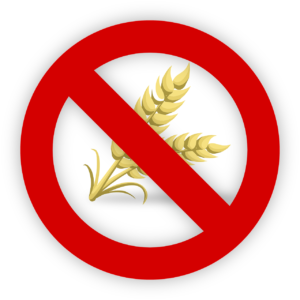A Comprehensive outlook to an Anti-Inflammatory Lifestyle
In the realm of health and wellness, the term "inflammation" has become a focal point, capturing attention from scientific circles to the realms of celebrities and social media influencers. The phenomenon of inflammation has also emerged, signifying an age-related surge in persistent, low-grade inflammation within blood and tissues, posing a substantial risk for various conditions and diseases.
Understanding Inflammation
When our bodies encounter injury or infection, they mobilize defense mechanisms, instigating a cascade of cellular responses to fend off invaders. This defensive action manifests as inflammation, often characterized by swelling, redness, and pain. In the short term, inflammation is a positive sign of healing, whether from a minor injury or a common cold. However, if inflammation lingers, it transforms into a chronic state, potentially signaling health issues such as arthritis, heart disease, diabetes, dementia, or other autoimmune disorders.
Signs of Chronic Inflammation:
- Persistent pain
- Chronic fatigue or insomnia
- Joint stiffness
- Skin problems
- Elevated blood markers (e.g., C-reactive protein)
- Gastrointestinal issues (constipation, diarrhea, acid reflux)
- Depression, anxiety, and mood disorders
- Unintended weight gain or loss
- Frequent colds or flu
The Crucial Role of Diet
The connection between food and inflammation is well-established. Certain dietary components can either activate the immune system, promoting pro-inflammatory cytokines, or conversely, dampen inflammation by boosting anti-inflammatory cytokines. A "pro-inflammatory diet," often low in fresh produce and high in processed foods, can exacerbate inflammation over the long term.
Conversely, an "anti-inflammatory" diet is associated with reduced inflammation. Notably, two well-recognized examples are the Mediterranean diet and the Dietary Approaches to Stop Hypertension (DASH) diet.
Elements of an Anti-Inflammatory Diet
- High in Antioxidants: Abundant in fruits and vegetables, antioxidants combat free radicals linked to illnesses like cancer and heart disease. Frozen, dried, and canned options are viable alternatives to fresh produce.
- Rich in Healthy Fats: Monounsaturated fats and omega-3 fatty acids, found in fish, seeds, nuts, and plant-based oils (e.g., olive oil), contribute to an anti-inflammatory diet.
- Fiber and Prebiotics: Fiber-rich foods like carrots, cauliflower, and leafy greens, along with prebiotics from onions, leeks, asparagus, garlic, bananas, lentils, and legumes, support gut health.
- Low in Processed Foods: Cutting down on refined carbohydrates and processed meats is crucial, as they contribute to inflammation.
Exploring Conditions and Diseases
Rheumatoid Arthritis
While evidence on the effectiveness of anti-inflammatory diets in managing rheumatoid arthritis pain is mixed, a 2021 systematic review suggests a potential decrease in pain. However, the included studies had a high risk of bias, necessitating further robust research.
Neurodegenerative Diseases
Inflammation plays a role in neurodegenerative diseases like Alzheimer's, and evidence hints at the protective potential of anti-inflammatory diets. Large randomized controlled trials are warranted to solidify these findings.
Mental Health
Associations between inflammation, pro-inflammatory diets, and mental health are evident. A pro-inflammatory diet is linked to increased symptoms of depression, emphasizing the crucial role of diet in managing mental health.

Turmeric's Role
Turmeric, celebrated for its anti-inflammatory properties linked to curcumin, holds promise. Research suggests curcumin's anti-inflammatory potential, yet high-quality human trials are lacking. While adding turmeric to your diet may offer health benefits, it shouldn't be solely relied upon for disease prevention or treatment.
Embracing Safe Eating
Recognizing inflammation as a major factor in the diet-health link, adopting an anti-inflammatory diet is deemed safe, promoting health and preventing future chronic conditions. For personalized dietary advice or an anti-inflammatory meal plan, consulting with an accredited practicing dietitian is recommended.






